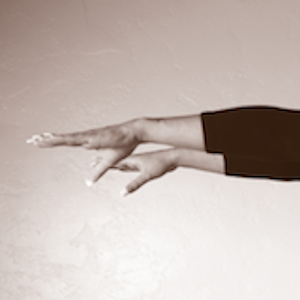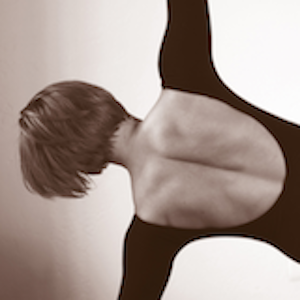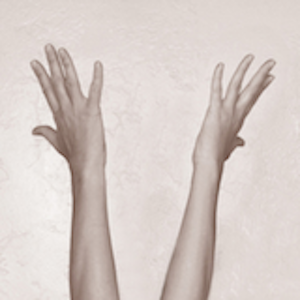This article, third in an occasional positive psychology series, examines the consequences a lack of sleep plays in attorney professionalism and productivity, the bene ts of healthy sleep and tips for getting the best sleep possible.
Lawyers are among the most sleep-deprived professionals in the country, and have rates of depression, burnout, substance abuse, and suicide that are two to four times higher than the national average.
What is the correlation between sleep and attorney well-being?
Most of us are sleep deprived. In a high-pressure career with its grueling schedule, we are likely to sacrifice sleep to get ahead. But sleep is not an indulgence. Skipping it can seriously hurt cognition, health and well-being. A good versus bad night’s sleep is one of the biggest dfferentials you can have in your work and quality of life.
Lawyers’ well-being and success depend on optimal mental activity. The recent documentary “Sleepless in America” showed that sleep deprivation impairs decision-making, communication and memory by 20–50 percent; additionally there is a 40 percent de cit in the capacity of your brain to concentrate, focus, learn and retain.
There is a link between sleep and health. Sleep elevates mood, provides access to positive emotions and resiliency and pro- vides a buffer against daily stressors. Further, circadian neu- roscientist Russell Foster found that mental illness and sleep are not simply associated; they are physically linked within the brain. The correlation between sleep and physical health is also strong. Since lawyers are susceptible to stress-related illnesses, sleep, a potent stress-buster and immune-booster, is an important safeguard.
What role does sleep play in attorney professionalism?
Sleep studies show that individuals who work through the night have the same cognitive impairment as being legally drunk.Lawyers cannot be at their best professionally or ethically if they are intoxicated at work and similarly, being sleep deprived may put you at professional risk.
Sleep ties into the ability to make good decisions. Sleep science proves that when you lack sufficient sleep you have poor memory, increased impulsiveness and overall poor judgment, which puts you at risk for attorney misconduct.
Lawyers' success requires rational and civil behavior at all times, and sleep is key to emotional regulation. With a good night's sleep you have the resources to think and plan your responses rather than react in stress. Indeed, excessive emotional reactivity, irritability, moodiness and disinhibition are some of the first signs a person experiences from lack of sleep. These emotions and more severe ones like anger or hostility do not bode well for civility required in the Creed of Professionalism.
Alcohol abuse is a familiar problem in the legal profession. Sleep is positively related to self-control resources, which may aid in the prevention and treatment of addictions including alcohol and other substance abuse.
Not surprisingly, when there is such a build up of fatigue that you reach a threshold, you may spontaneously fall asleep due to a substance in the brain that drives the need to sleep. For lawyers, this can have embarrassing or even far-reaching repercussions. In a "sleeping lawyer" case, a complaint based on the constitutional right to an attorney, was filed against an attorney who fell asleep numerous times during his client's legal proceedings.
How much is enough sleep? What processes happen during sleep? How can lawyers achieve restful sleep?
Sleeping pills and alcohol don't solve the problem. The currently available sleeping drugs impair motor coordination, attention, and memory well into the following day, and alcohol does not provide real sleep. It is a biological mimic that sedates and impairs important neural processing (important for memory consolidation and memory recall) that happens during sleep. With alcohol you may fall asleep quicker, but it also interferes with deep restorative sleep, resulting in not feeling refreshed the next morning. Additionally, as the body begins to metabolize the alcohol, increased wakefulness often occurs.
The National Sleep Foundation recommends seven to nine hours of sleep per night for the average adult. When sleep is less than seven hours there is an escalation in obesity, diabetes, cancer, Alzheimer's disease, cardiovascular disease, depression and substance abuse, according to the top researchers in sleep science.
Further, according to a two-week sleep study by David Dinges, Ph.D., Professor of Psychology and Chief of the Sleep and Chro- nobiology Lab at the University of Pennsylvania, subjects who slept six hours per night were as impaired as individuals who (in a different study) tested at the cognitive equivalent of legal intoxication after being deprived of sleep for 24 consecutive hours. Another key finding was that sleep-deprived people are poor judges of their own sleep needs, i.e., people who slept four or six hours per night said the sleepiness did not affect them, when in fact their performance had "tanked."
Some crucial psychological and physiological processes that happen during sleep are:
Your brain reviews the day, processing memories and storing im- portant things in "files." This procedure results in waking refreshed with renewed resources to deal with daily stress. Without this process, you wake up with unresolved tensions and less resilience.
Important body maintenance during sleep related to digestion, cell repair and growth as well as functions related to blood sugar, blood pressure, metabolism, and immunity occur. Without this critical maintenance, the body is in stress mode and more sus- ceptible to diabetes, cardiovascular disease, obesity and cancer.
During sleep the brain clears out toxic chemicals that are byproducts of neural activity. A protein associated with Alzheimer's that researchers believe causes brain cell death accumulates in the brain, and clearance of that toxic substance is greater during sleep than wakefulness. This finding has led certain researchers hypothesize that the flushing out of this protein is one of the most important functions of sleep.
Components that help you transition into sleep:
- A biological timer in your brain counts the number of hours you have been awake, and the longer you are awake the sleepier you get.
- This timer needs to synchronize with the circadian rhythm clock in your brain which is reset every day with light. In bright light (including blue light from electronic devices) your body wakes up. In the absence of light, nerve cells at the backs of your eyes send signals to your brain to produce melatonin, which makes you feel sleepy.
- You need a calm mind. This is often the most challenging element for lawyers because we are so overwhelmed with deadlines and oppressive “to-do” lists that we have trouble shutting o our brains. Meditation and deep relaxation are o en the best answers to ipping the switch and falling asleep. Even if you fall asleep when your head hits the pillow (perhaps because the physical need for sleep is so overwhelming), without a calm mind, you may sleep for one to three hours, but then your mind breaks through and you wake up thinking or ruminating, and then have trouble getting back to sleep.
- It’s best to not take emotional issues, reoccurring thoughts and stress to bed. Daytime techniques such as positive psychology exercises or meditation (described in prior “Positive Psychology for Lawyers” articles published in the Bar Bulletin), or short naps (eight to 10 hours after waking and no more than 30 minutes long so as not to reset your “biological timer”) or “nap alternatives” such as iRest®, www.iRest.com (also described in a prior article) or restorative yoga may help you relax or resolve disturbing issues during the day so they don’t affect your sleep.
To help get restful sleep, make a habit of these "sleep hygiene" practices:
- Keep your bedroom a haven for sleep, as dark as possible and slightly cool
- Avoid blue light and reduce light exposure an hour before bed. The brain mistakes it for sunshine and time to wake up.
- Don't drink caffeine late in the day.
- Try to have a consistent sleep-wake schedule.
- Try to have a consistent sleep-wake schedule.
Conclusion
Sleep science proves that sleep is not an option. Just as we need food, water, and air, su cient sleep and quality sleep are important. You may be a “work now, sleep later” kind of person or have an “I don’t have to sleep” mentality. However, you need to take sleep seriously.
Good sleep increases your concentration, attention, ethical decision-making, and mental and physical health. At the same time it reduces stress, hostility, impulsivity, and the tendency to drink and take drugs. You can’t cut corners on sleep and have it not a ect you. You benfit tremendously from those restorative hours in the dark.
Endnotes
- Williamson A, Feyer A. Moderate Sleep Deprivation Produces Impairments in Cognitive and Motor Performance Equivalent to Legally Prescribed Levels of Alcohol intoxication. Occup Environ Med. 2000 October; 57(10): 649-655
- www.scienceworldreport.com, July 2, 2015, “Sleep: Too Little May Cause Loss of Self Control”; also www.harvardbusinessreview.org, October 2006, “Sleep Deficit The Performance Killer”
- aasmnet.org, “Sleepless in America”, Documentary, American Academy of Sleep Medicine, December 2014
- aasmnet.org, “Sleepless in America”, Documentary, American Academy of Sleep Medicine, December 2014




